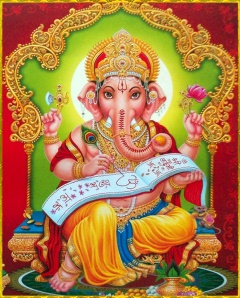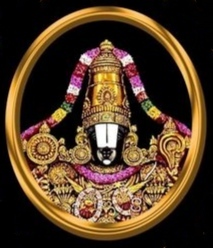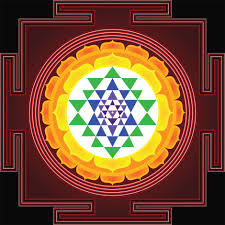Hold on… Ever wondered how those spinning reels and shuffled cards in online casinos stay fair and random? The secret lies in the RNG certification process—an often overlooked but crucial pillar ensuring players aren’t just rolling dice with rigged odds. Simultaneously, casinos have upped their game through gamification quests, aiming to blend fun with strategy, but do they really add value or just complicate your play?
Getting straight to the point—understanding the RNG (Random Number Generator) certification steps and how gamification quests operate can shield you from common pitfalls and enhance your gaming experience. Let’s unpack these concepts, layer by layer, with relatable examples tailored for Australian players dipping their toes into online gambling waters.

What Is RNG Certification and Why Does It Matter?
Something’s off… When you hear “random” in online gambling, what does it really mean? The truth is, RNGs are sophisticated algorithms generating sequences of numbers simulating chance, but without independent certification, they’re black boxes open to mistrust.
The RNG certification process involves third-party testing laboratories rigorously auditing these algorithms. They verify statistical randomness, uniform distribution, and absence of bias or predictability over millions of trials. Leading testing bodies such as iTech Labs, eCOGRA, and GLI perform such certifications.
For example, a slot with a certified RNG might be tested over 100 million spins to ensure hit frequencies and payout distributions align with declared RTPs (Return to Player). This isn’t just theory — it’s science-backed trust. Australian players can rest easier knowing the casino’s RNG passed these tests, adding a layer of credibility beyond just the licensing jurisdiction.
Yet, RTR (real-world testing results) sometimes differ due to volatility, so certification is a necessary but not solely sufficient guarantee. Here’s a quick comparison table to clarify common certification standards:
| Certification Body | Scope of Testing | Typical RTP Verification | Reputation / Region Acceptance |
|---|---|---|---|
| iTech Labs | RNG algorithms, game fairness, RNG output distribution | Detailed RTP audits per game | Widely accepted globally, including AU market |
| eCOGRA | Fair gaming, responsible gambling compliance | Focuses on RTP and game rules | Respected in Europe, Australia recognizes |
| GLI (Gaming Labs International) | Comprehensive RNG and system certification | Strict RTP and randomness standards | Highly regarded worldwide, regulatory preferred |
Common Pitfalls in RNG Certification for Beginners
Here’s the thing. Certification documents can look intimidating, and many players skip checking them altogether. This opens the door to subtle issues, like uncertified games slipping in or outdated certificates misleading players. Also, some casinos rely solely on platform-wide RNG certification, ignoring individual game audits, which can mask poor return behavior.
In my experience, a practical approach is to verify if the casino transparently displays certificates and test summaries on their site or in third-party reviews before committing funds. For instance, oshi777.com openly promotes its SOFTSWISS platform integration and third-party test results, which boosts player confidence.
Mathematically, consider this: if a slot has a stated RTP of 96%, but the RNG is uncertified or poorly tested, your actual expected return can fluctuate wildly. Over a $1000 play session, you might expect $960 back theoretically—yet poor RNG can skew this by several percent, causing losses beyond variance. This uncertainty is avoidable with certified RNGs.
Casino Gamification Quests: What Are They and Should You Care?
Wow! Quests in casinos? Sounds like video games—but yes, many online casinos now embed gamification elements, transforming passive spins into interactive challenges. Typical quests might include spinning a specific slot 50 times or hitting certain bonus features to unlock extra rewards or tiers.
These quests aim to increase engagement and player retention by adding layers of goals beyond simple wins and losses. For example, a quest might reward “Collect 100 scatter symbols on Book of Dead within 7 days” with free spins or bonus cash.
Here’s a simple checklist to evaluate whether engaging with quests is right for you:
- Assess wagering requirements attached to quest rewards carefully—are they realistic?
- Check game eligibility—do the quest conditions exclude your favorite games?
- Understand time limits—short expiries are common traps that rush play and increase risk
- Monitor bankroll impact—quests sometimes encourage overplaying or chasing losses
To illustrate, I once chased a “spin 500 times on XYZ slot” quest with a 3-day expiry. The urgency pushed me to increase bet sizes and play longer sessions, which didn’t end well. That experience taught me to prioritize quests with fair terms and matching play styles.
Comparison Table: Pros and Cons of Casino Gamification Quests
| Aspect | Pros | Cons |
|---|---|---|
| Player Engagement | Increases fun and goal-setting | Can promote excessive gambling behaviour |
| Bonus Value | Offers extra rewards beyond standard bonuses | Often comes with high wagering requirements |
| Game Variety | Encourages trying new games | May exclude popular games, limiting appeal |
| Time Pressure | Keeps play dynamic and fresh | Short expiry times can lead to rushed play |
Quick Checklist: How to Verify RNG Certification and Navigate Casino Quests
- Confirm the casino holds RNG certification from reputable labs.
- Look for detailed audit reports on casino or platform websites.
- Ensure individual games are certified, not just the platform RNG.
- Read terms and conditions of gamification quests thoroughly.
- Calculate wagering requirements and expiry periods before opting in.
- Track your play time and budget to avoid chasing quest progress.
Common Mistakes and How to Avoid Them
My gut says many players fall into these traps:
- Trusting RNG without verification: Don’t assume a casino is fair just because it claims so. Always seek documented certification.
- Ignoring game-specific audits: Even with certified RNGs, some games might not be audited—know which ones count.
- Taking quests at face value: Bonuses look sweet but can have hidden clauses. Don’t let quest timers pressure you into bad bets.
- Skipping KYC ahead of withdrawals: KYC delays can hold up your winnings—prepare documents early.
Mini-FAQ
How often should RNG be certified?
Generally, laboratories perform initial certification before launch and periodic audits annually or upon software updates to ensure ongoing fairness.
Can I verify RNG certification myself?
Yes, by checking casino sites or trusted review platforms for certification badges and audit reports. Lab websites sometimes list certified casinos too.
Are gamification quests worth participating in?
They can enhance enjoyment if terms are fair and you avoid chasing losses or overplaying due to time pressure.
Does certification guarantee winning?
No. Certification guarantees fairness and randomness, not results. Variance and luck always play roles in gambling outcomes.
Are there special considerations for Australian players?
Yes. Australian regulators don’t license offshore casinos, so players rely more on third-party certifications and must be cautious with gambling laws and self-exclusion tools.
Alright, check this out—combining awareness of RNG certification with a cautious approach to gamification quests can be your armour in navigating online casinos safely and enjoyably. Platforms like oshi777.com illustrate how transparency in RNG testing and thoughtfully designed quests can coexist, offering both fairness and fun.
This content is intended for Australian residents aged 18+. Please gamble responsibly. If you or someone you know needs support, visit organisations such as Gambling Help Online or Dial 1800 858 858 for confidential assistance.



